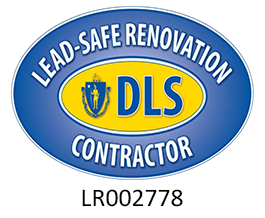Providing reliable heat to homes since the 1800s, radiators are durable units that can last many years. Yet as with most home mechanicals and major systems, they too can suffer corrosion, cracks, leaks, and other damage that requires repair. Depending on the type, age, and condition of the system, repairs can be simple fixes or more complex and costly. Additionally, if a system is much older than most, replacement parts may no longer be available.
Read on as we share some of the most common radiator problems a homeowner is likely to face.

Common Radiator Problems
Most problems occur with thermostats, wiring, pipes, and valves. A licensed heating technician can determine whether the problem is severe and requires replacement or if repair work is needed. If you notice unusual sounds, pressure problems, too little or too much heat, rust, or leaks, have your radiator inspected.
- Banging noises typically signal an air flow problem. The radiator may have incurred some corrosion, have too much trapped air or a limescale build-up. The most common fix is to bleed the radiator to release excess air.
- Lack of heat can also result from excess trapped air – once again, bleeding can help. Otherwise, the source of the problem could be faulty wiring (in an electric-powered radiator), or a faulty valve that needs replacing.
- On the other hand, a radiator that produces too much heat usually signals that the thermostat is not regulating the temperature properly and needs to be repaired or replaced.
- Radiators are designed to resist rust. However, those that are not properly maintained or have long-term leaks will eventually rust. If the damage is minimal, the surface can be repaired and painted. More severe damage may require replacement.
- Depending on the cause and location, a leak can be an easy fix, in the case of a loose or faulty valve, or more involved and costly, like a crack in a pipe or the radiator itself.
- A forceful impact can cause a radiator to crack and leak. While some leaks can be sealed, most require radiator replacement to help ensure safety.
- If too much steam and hot water builds up in the boiler, it can cause pipes to burst and valves to leak.
- Over time, rust and sludge can build up at the bottom of a radiator, leading to uneven heat or no heat at all. In some cases, fully draining the unit can help.
At Pann Home Services, we are boiler and radiator heating system specialists. Plus, we do it all – ongoing maintenance, high quality repair work, and expert system installation. If it’s been more than a year since your boiler was last inspected, call to schedule service now. Because even if it appears to be running smoothly, problems can appear without warning.









